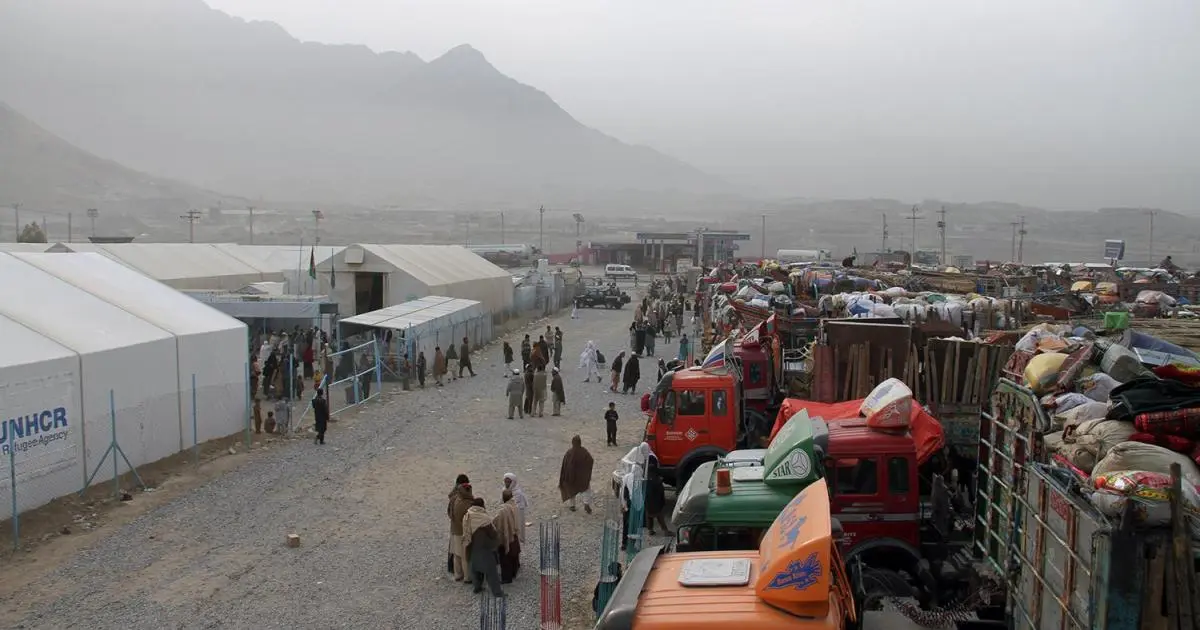Pakistan Forces Mass Expatriation of Tens of Thousands of Afghan Nationals

Pakistan has intensified its efforts to deport undocumented Afghan nationals, with over 19,500 individuals expelled this month alone. This surge is part of a broader initiative that has seen more than 80,000 Afghans leave the country ahead of a looming April 30 deadline. The Pakistani government cites an inability to manage the high number of refugees as the primary reason for the crackdown, which has led to daily deportations of between 700 and 800 families. As tensions rise, Pakistani Foreign Minister Ishaq Dar recently visited Kabul to discuss the situation with Taliban officials, who have expressed deep concern over the mass deportations.
Mass Deportations and Rising Tensions
The ongoing deportation campaign has raised alarms among humanitarian organizations and Afghan officials. The United Nations reports that approximately 3.5 million Afghans currently reside in Pakistan, with around 700,000 having arrived since the Taliban’s takeover in 2021. The UN estimates that nearly half of these individuals are undocumented. Pakistan has historically provided refuge to Afghans fleeing conflict, but the government now argues that the sheer volume of refugees poses significant risks to national security and strains public services.
In recent discussions, Pakistani officials extended the deadline for undocumented Afghans to leave the country to April 30, allowing for a brief reprieve amid escalating tensions. However, the situation remains precarious, with border clashes reported between Pakistani and Afghan security forces. Pakistan attributes these incidents to militants operating from Afghan territory, a claim the Taliban denies. The urgency of the situation has prompted high-level talks, but the humanitarian implications of the deportations continue to unfold.
Impact on Families and Individuals
Many of those being deported have deep ties to Pakistan, with some having been born there after their families fled Afghanistan. Individuals like Sayed Rahman, who has lived his entire life in Pakistan, express feelings of helplessness and uncertainty about their future. Families face the daunting prospect of returning to a country they may not even recognize, with concerns about the Taliban’s restrictions on education and personal freedoms. For instance, Saleh, a father of three daughters, worries about the future of his children’s education, as girls over the age of 12 are barred from attending school in Afghanistan.
The emotional toll of these deportations is palpable, with many returnees lamenting the loss of their homes and livelihoods. One man shared that his children had never seen Afghanistan, highlighting the disconnect many feel as they are forced to return to a land they have never known. The stories of these individuals underscore the human cost of the ongoing political and social upheaval in the region.
Conditions at the Torkham Border Crossing
At the Torkham border crossing, the conditions for deported families are challenging. Men and women are processed through separate gates, monitored by armed guards from both countries. Many returnees are elderly or in poor health, requiring assistance to cross the border. Temporary shelters have been set up for families, but resources are limited, leading to overcrowding and disputes over access to basic necessities.
As families wait for transportation to their home provinces, they endure harsh conditions, including extreme heat and dust storms. Reports indicate that returnees receive financial assistance from the Taliban authorities, ranging from 4,000 to 10,000 Afghanis (£41 to £104). However, the influx of deportees is placing immense pressure on Afghanistan’s already fragile infrastructure, which is grappling with an economic crisis and a population nearing 45 million.
Bakht Jamal Gohar, the Taliban’s head of refugee affairs at the crossing, acknowledged the difficulties posed by the large number of returnees. Many families have left behind their belongings, and the emotional strain of returning to a war-torn country is evident. Despite the challenges, Pakistani officials maintain that there is no policy preventing Afghan refugees from taking their household items with them, although many deportees report otherwise.
Observer Voice is the one stop site for National, International news, Sports, Editor’s Choice, Art/culture contents, Quotes and much more. We also cover historical contents. Historical contents includes World History, Indian History, and what happened today. The website also covers Entertainment across the India and World.
Follow Us on Twitter, Instagram, Facebook, & LinkedIn

